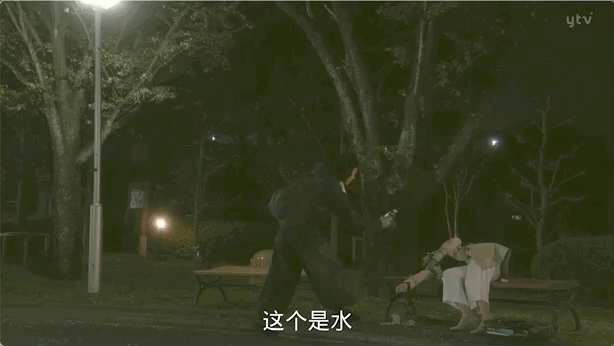Life is a Comedy |
"Life is a Comedy" is the theme this drama conveys through its run time, beautifully.
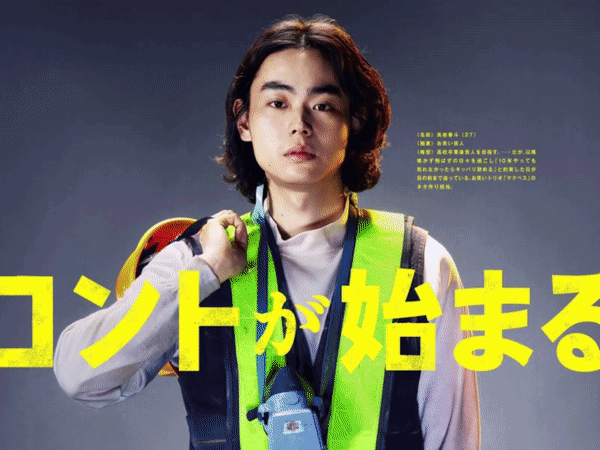
Konto Ga Hajimaru's English title Life's Punchline couldn't be more apt for the drama. This drama is about life, and the punchline, as every good joke should, comes at the end.
The Premise |

Life's Punchline starts off with the comedy trio Macbeth announcing that they are going to disband to the utter devastation of their new fan Rihoko; a recluse who lives with her little sister, Tsumugi, who is perplexed by her elder sister's obsession with the group. The drama follows five individuals who in their late 20s are facing impending changes in their lives.
Each episode starts off with a short skit penned by the trio, which ties into the remainder of the episode, unfolding as an allegory for the problems the characters are facing in their real lives in that episode.
The Ensemble |
An ensemble cast of Japan's finest, the acting is both nuanced and relatable. The actors embody the subtleties of human emotions in single glances and silences.
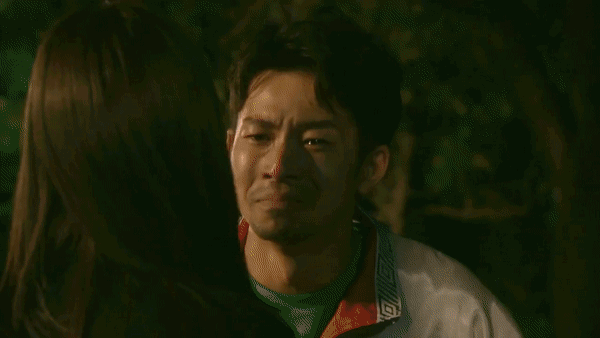
Life's Punchline boasts an ensemble cast consisting of Suda Masaki, Arimura Kasumi, Nakano Taiga, Kotone Furukawa, and Kamiki Ryunosuke.
Suda Masaki as Haruto.
Haruto is the main writer and the co-leader of Macbeth. Haruto is a character who struggles with feelings of guilt and responsibility, as he believes he convinced his friends to pursue comedy, wasting the last 10 years of their lives. He is passionate about his work but also struggles with uncertainty and the fear of failure.
Throughout the drama, Haruto is shown navigating the challenges of life and relationships, trying to find his place in the world, and grappling with the difficult decisions that come with adulthood. Despite his insecurities, Haruto is a character who cares deeply about his friends and his craft.
Nakano Taiga as Junpei.
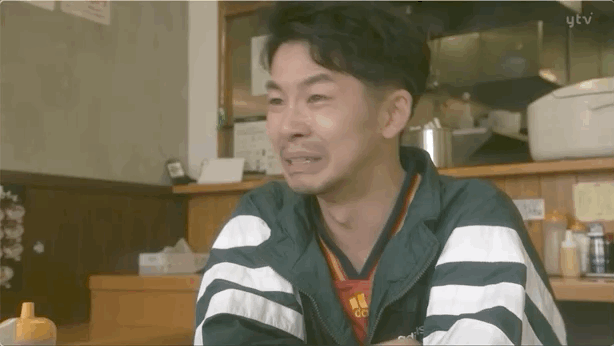
The co-leader of Macbeth, Junpei is passionate and quick to lose his temper. A man with a heart of gold, but shy to discuss his feelings, he feels he is responsible for the last 10 years, for dragging Haruto to do a skit with him during their School Festival, which led to Haruto making the diction to peruse comedy.
Kamiki Ryunosuke as Shunta.
The last member to join Macbeth, a ladies' man, and a former pro-gamer champion, Shunta has a charming personality and an easy-going attitude. He seems to have everything going for him, but he also has a complex past that haunts him. He has been following Haruto's lead since he believes that Haruto is someone who can grant people's wishes. Shunta is loyal to his friends, and he deeply cares about the success of their comedy trio.
Throughout the series, we see Shunta's struggles with his past and how it affects his present. As the series starts to unfold more layers are revealed of this manic pixie dream boy. From his envy towards the bond Haruto and Junpei share to his astringent relationship with his parents, to his kindness towards Tsumugi.
Arimura Kasumi as Rihoko.
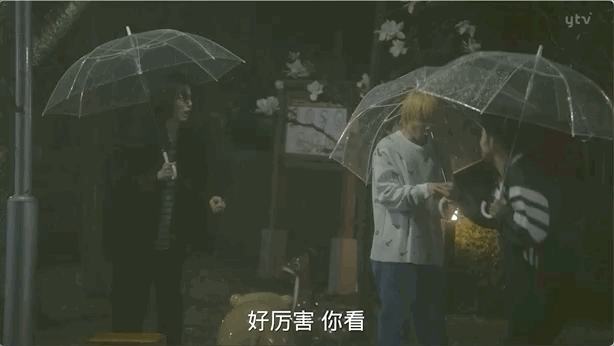
Rihoko is a socially isolated young woman who lives with her younger sister, Tsumugi. She becomes a fan of the comedy trio Macbeth and is devastated when they announce their disbandment. Rihoko's character arc revolves around her learning to come out of her shell and form connections with others. Throughout the series, she is seen slowly opening up to the people around her, including her sister and the members of Macbeth. As she begins to form new relationships, she discovers more about herself and learns to navigate the difficult decisions and changes that come with life. Rihoko's character is a poignant reminder of the importance of human connection and the impact it can have on our lives.
Furukawa Kotone as Tsumugi.
She is the younger sister of the trio's main fan, Rihoko Nakahama. Tsumugi is portrayed as an intelligent and curious young girl, who is also quite mature for her age. Despite her sister's obsession with the comedy trio, Macbeth, Tsumugi is more grounded in reality and has a more practical outlook on life.
Tsumugi is an essential character in the drama, as she serves as a sounding board for Rihoko and a source of wisdom for the other characters. Her observations and insights often provide the catalyst for the other characters' personal growth and development.
The Themes |
Hard Work Does Not Always Pay Off
One of the prominent themes in Life's Punchline is the idea that hard work does not always pay off. This theme is explored through the characters' struggles with their careers and personal lives, highlighting the harsh reality that sometimes no matter how much effort you put into something, success is not guaranteed.
In the drama, Haruto is a talented writer and co-leader of the comedy trio Macbeth. He has spent the last ten years writing and performing skits with his friends, hoping to make a name for himself in the industry. Despite his hard work, however, the group is still relatively unknown, and they are faced with the difficult decision of disbanding.
Similarly, Junpei, the other co-leader of the group, has also put in a great deal of effort over the years to make the group a success, but his hot-headed nature often leads to conflict, making it difficult for the group to move forward.
The characters' struggles with their careers and personal lives highlight the harsh reality that sometimes, even with hard work and dedication, success is not guaranteed. However, the drama also emphasizes the importance of not giving up, even in the face of failure. Through the characters' struggles, the drama reminds us that life is unpredictable, and success is not always within our control. However, it also encourages us to keep moving forward, to continue striving for our goals and dreams, and to find happiness in the journey, even if the outcome is not what we expected.
Overall, Life's Punchline is a poignant and relatable drama that explores the ups and downs of life, and the importance of perseverance and resilience in the face of adversity. The theme that hard work does not always pay off is just one of the many insightful messages that the drama conveys, making it a must-watch for anyone looking for a thought-provoking and heartwarming viewing experience.
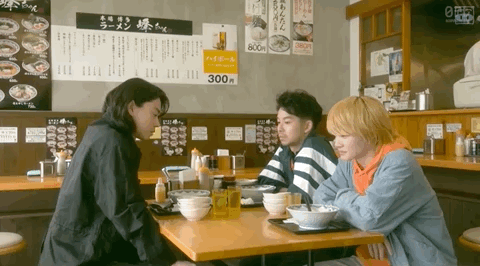
The Courage to face Failure and start Anew
Life's Punchline also explores the theme of having the courage to face failure and start anew. Each of the characters faces their own unique challenges and failures throughout the series, but they all find the strength to move forward and start over again.
For example, Haruto struggles with feelings of guilt and regret for the last ten years of his life, feeling like he wasted his friends' time and potential by pursuing comedy. However, he eventually finds the courage to confront his past mistakes and start a new chapter in his life.
Similarly, Junpei is faced with the challenge of letting go of his anger and insecurities, learning to express his emotions, and communicate more openly with others. And Rihoko, the young fan of Macbeth, must learn to overcome her fear of social interactions and embrace her own identity.
The characters' journeys demonstrate that failure and setbacks are a natural part of life and that it takes courage and determination to pick yourself back up and start again. Life's Punchline offers a message of hope and encouragement for viewers who may be struggling with their own challenges, reminding us that it's never too late to start anew.
Life's Crossroads
The concept of life's crossroads is a prominent theme in Life's Punchline. The characters in the drama are in their late 20s and facing changes in their lives. They are at a point where they need to make important decisions that will shape their future. The idea of being at a crossroads in life is relatable to many people. It can be a time of uncertainty, anxiety, and fear, but also a time of opportunity and growth.
The drama portrays the characters' struggles with decision-making and the consequences that come with those decisions. The characters are not always sure which path to take, but they learn to face their fears and make choices that align with their values and aspirations. It shows that making mistakes and taking risks is a natural part of life, and it's important to have the courage to face failure and start anew.
Life's Punchline also explores the idea that life is not a linear journey, but a series of ups and downs. The characters face setbacks, but they learn to pick themselves up and keep moving forward. They realize that life is not about reaching a destination but about enjoying the journey and the people you share it with.
In conclusion, Life's Punchline is a relatable and inspiring drama that explores the concept of life's crossroads. It encourages viewers to have the courage to face failure, take risks, and make choices that align with their values and aspirations. The drama shows that life is not always easy, but with perseverance, resilience, and the support of loved ones, the journey makes it worthwhile.
Life and Relationships
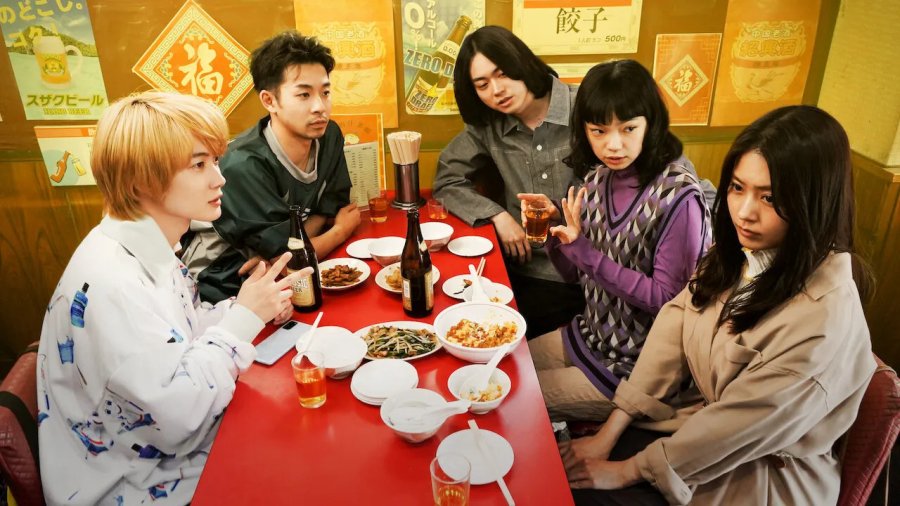 A drama about life and relationships you have with your friends, family, siblings, employers, idols, and yourself. Those relationships evolve and change during the course of life.
A drama about life and relationships you have with your friends, family, siblings, employers, idols, and yourself. Those relationships evolve and change during the course of life.
Life's Punchline depicts beautifully the intricate and often constantly changing and contradictory nature of relations we have in our lives from multiple angles. Even if we love each other and our goals are the same, it doesn't necessarily mean that we will not be in conflict with each other. Even as adults we do not have all the answers, the best we can do is try our best, and grab a bite with our friends and family at the end of the day. Being passionate and willing, but now we're not kids anymore, so we have to make a choice without knowing if it is the right decision. It leaves us in a constant state of confusion and uncertainty. Despite all that we still enjoy the current time, even if it is confusing, as long as we hang out together at night, even a horrible day feels lighter. A representation of how people in real life go through the transition from one phase of their life to the next. We struggle, but we survive because we're together. Life's punchline is relatable to anyone who is standing at the crossroads of life, making decisions that will have consequences in their lives. We are all afraid, but we persist together.
"When you look back on your life...
and it seems like a silly skit...
won't you think that it wasn't that bad of a life?" 1
On a Personal Note. |
When I first saw the teaser for Conpaji, I expected it to be a light and breezy drama or a typical melodrama. However, I was pleasantly surprised to find that it was so much more. The show explores themes that are relatable to people in their teens, 20s, and 30s, as it deals with the struggles of facing reality and making important decisions with long-lasting consequences.
One of the strengths of the show is its realistic and relatable characters. Every character feels like a real person, someone you might know in your own life or among your friends. As a college student myself, I found many of the situations depicted in the show to be an exact reflection of my own experiences and those of my friends. We are all passionate and willing to succeed, but as we grow older, we are forced to make choices that can be overwhelming and uncertain. Yet, despite all the confusion and uncertainty, we still find joy and comfort in being together with our friends.
Conpaji is a drama that truly reflects how people transition from one phase of their life to another. It depicts the struggles we all face as we try to find our place in the world, but it also shows how we can survive and thrive by being together. Additionally, the show does a great job of depicting the relationship between fans and the people they admire. It starts as a diversion but eventually becomes an emotional attachment, and then you want to know everything about them. However, the show also highlights the importance of respecting the privacy of those we admire, while still offering support and encouragement.
For me personally, the show resonated on a deep level, as I am always struggling with the choice between what I want to do and what I should do. I am aware that this is the last year of my life where I can experiment, but I lack the confidence to take risks. Despite my own struggles, I found Conpaji to be a beautiful reminder that it's okay to struggle and that we can find solace in being together with our loved ones. Overall, I highly recommend this drama to anyone standing at the crossroads of their lives.
Edited by: BrightestStar (1st editor)

